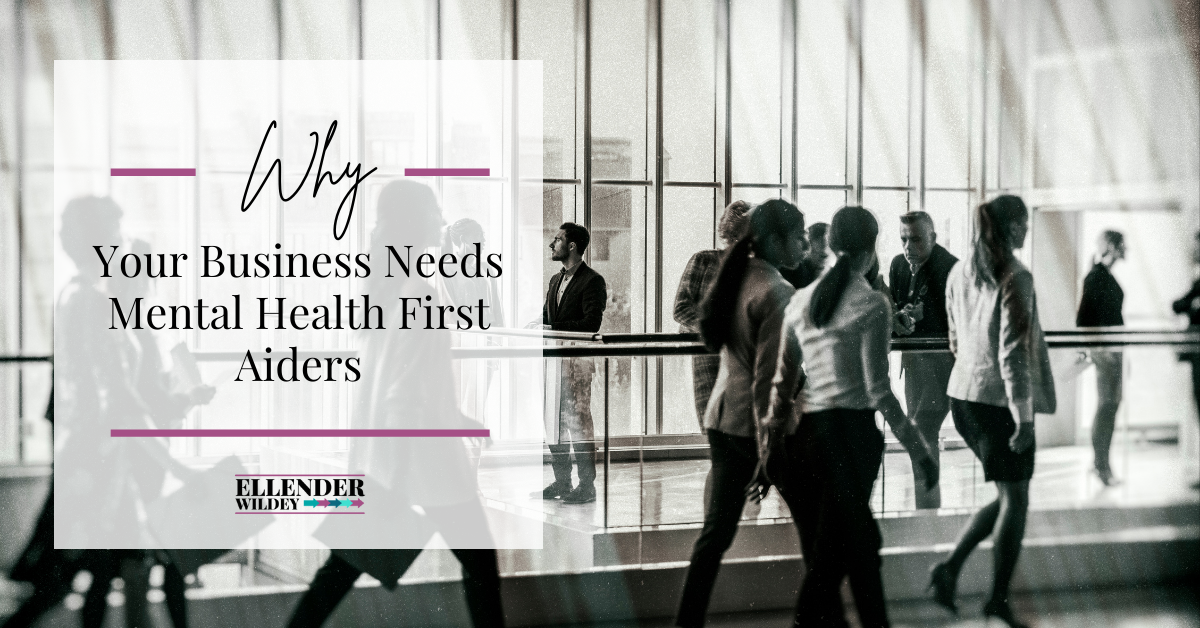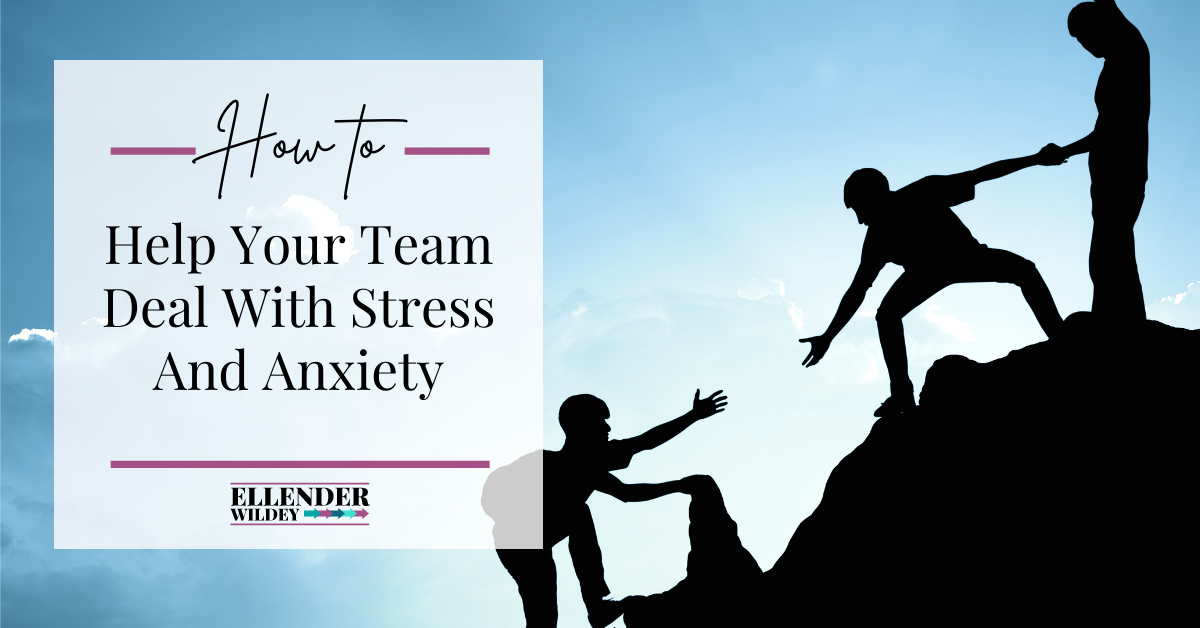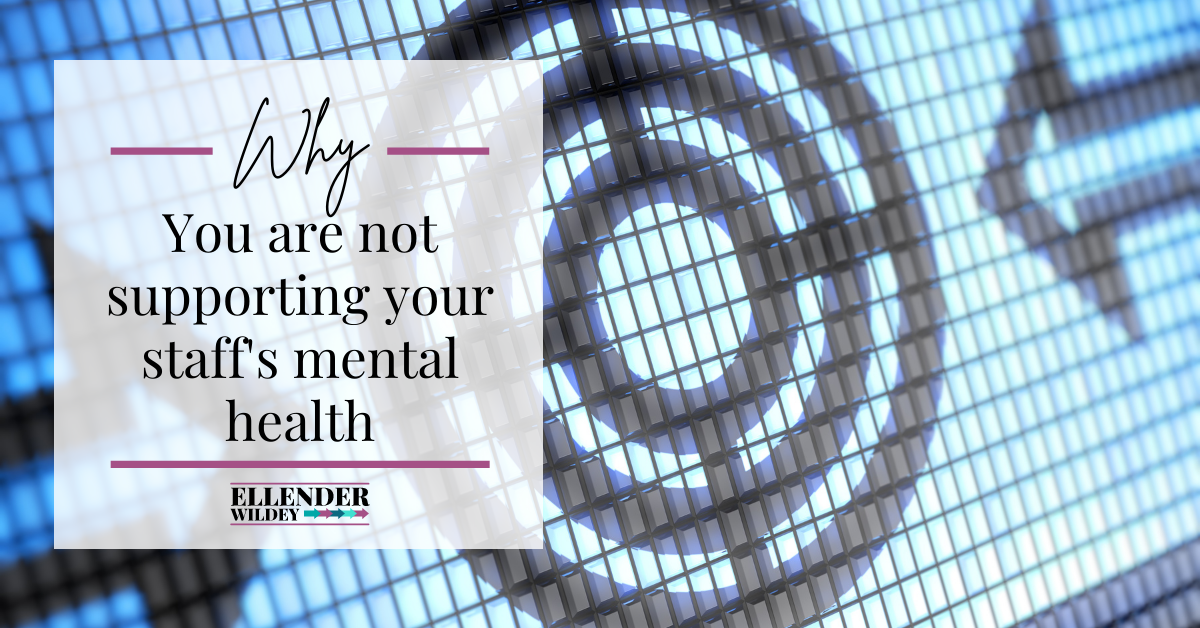Who would your staff go to when they need support at work with their mental health?
Do you have a clear, named point of contact in place?
Are there posters?
Any information at all?
No?
If not, then why not?
Don’t your employees deserve the same trust that they will be supported with their mental health as they are with their physical health?
To prevent matters from getting worse?
To, essentially, preserve life?
In fact, aren’t your employees more likely to present with a mental health issue than an arterial bleed or requiring CPR? Most of us have at least some basic first aid knowledge to deal with these situations if they arise, whether they are the designated person or not.
But how would your staff be able to deal with a mental health issue if it came about?
Through certified training that is based on fact, knowledge and confidence building surrounding mental health struggles, mental illness and the signs or symptoms, I can equip your staff with the know-how.
Are you ready to explore more reasons why your business needs Mental Health training?
Then contact me and let’s get the ball rolling. As a Mental Health First Aid Instructor, I will teach your staff the skills and inspire them to want to know more about how they can help.
Moving forward, it is vital that all employers treat mental health and physical health with the same importance. Why not start making those changes right now?
Okay, that said, it is not YET a legal requirement, and I truly hope that this changes, and soon. Not from a business point of view, but a personal one.
The sooner that mental health is treated with equal regard to physical health the better. We should be able to talk about our mental health challenges in the same way we talk about our dodgy knees or troublesome back.
When an injury occurs at work, your employees should know exactly who to go to for assistance. There will be a clear, named point of contact, posters and a first aid box. If they are lucky, even a designated first aid room. Your staff will trust in the knowledge that action will be taken and they will receive appropriate help and support to prevent matters from getting worse and, essentially, to preserve life.
In fact, for the benefit of staff welfare and for a workplace to be deemed as safe and healthy for all, HSE (First Aid) regulations 1981 require such measures in place. You must ‘provide adequate and appropriate first aid equipment, facilities and people for immediate help’. Initial action is taken and, maybe, emergency services are called to provide further professional help. Or, perhaps, a future visit to the GP is called for and some time at home to recover until a return to work is possible.
How many Mental Health First Aiders does your organisation need?
As with physical first aiders, this will depend on the ‘degree of hazard’ and the type of work carried out by your staff. It is also important to consider what provisions are in place when a first aider is absent or on leave.
I would recommend training at the very least for all line managers, supervisors and senior management – including any one who has a duty of care for a team. Some companies that I currently train have a self imposed target of training 10% of their workforce at all staffing levels and I agree that this is a good ballpark figure to attain.
When deciding on what figure is right for your organisation, consider the following;
- Anyone can get a mental health problem
- 1 in 4 of us will experience a mental health problem of some kind each year
- 1 in 6 people report experiencing a common mental health problem, like anxiety and depression, in any given week
- 1 in 5 people have suicidal thoughts
- Receiving support early can stop a mental health problem from getting worse
- According to an HSE research report in 2021, ‘There is consistent evidence that MHFA training raises employees’ awareness of mental ill‐health conditions, including signs and symptoms. Those trained have a better understanding of where to find information and professional support, and are more confident in helping individuals experiencing mental ill‐health or a crisis.’
Are you ready to treat mental health and physical health equally in your organisation?
Not sure what the next step should be?
Then get in touch and we can discuss your training needs.








